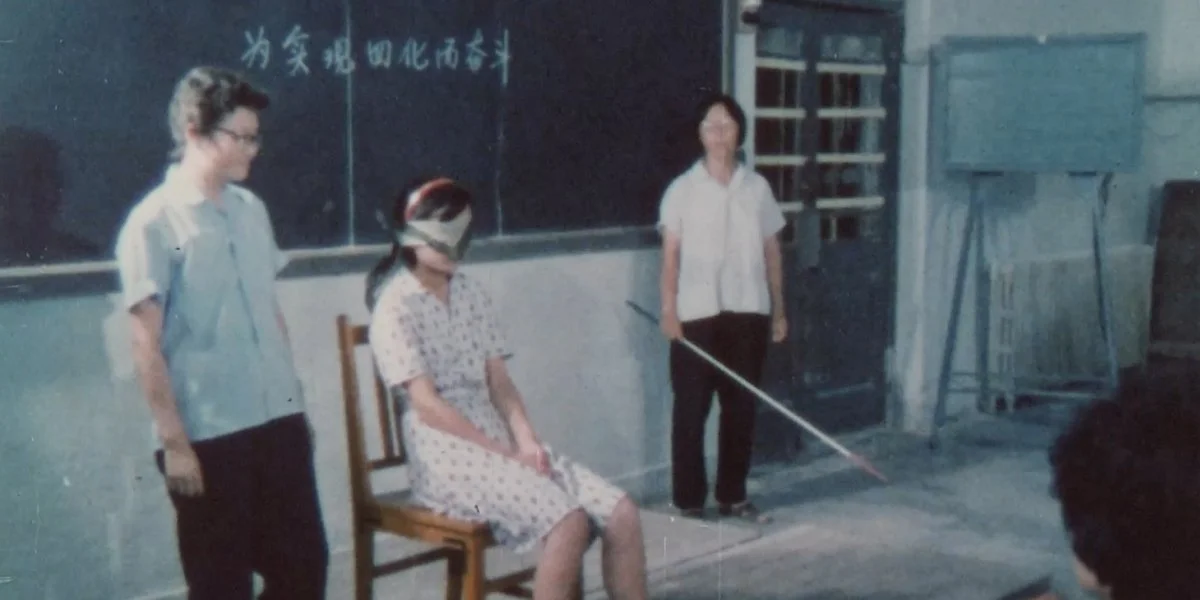Do You Believe? 1980
Showcasing three short films made by the Chinese state in the 1980s, this program ventures into the uncanny field between documentary and science fiction. As the socialist country stumbled into capitalism, nonfiction films gave forms to alternative epistemologies that reconfigure bodies, medicine, military, and education. The boundaries between documentary, science education film and fiction genres were constantly shifted according to specific political campaigns, resulting in hybrid and often experimental practices and the constrution of a new national subjectivity that transcended modern western science. Through this double engagement with both form and content, this program does not produce yet another exceptional account of Chinese media and science, but rather sheds light on the necessary political, medical, and scientific conditions of truth claims.
Curated by Zoe Meng Jiang and Jenny Chio.
Screening
Do You Believe?
Central Newsreel & Documentary Film Studio, China, 1980, 16mm transferred to digital, color, sound, 35:00
In 1979, less than one year after China entered its reform era, reports surfaced nationwide about children allegedly possessing extrasensory powers. The Central Newsreel and Documentary Film Studio, the only state film studio dedicated to nonfiction filmmaking, set out to investigate these superpowered children. It is the only film titled with a question mark in the studio's history.
Interviewing Qigong Masters
August First Film Studio, China, 1989, 16mm transferred to digital, color, sound, 20:00
Originally a breathing exercise dating back 2,000 years in China, qigong experienced a surge in national popularity during the 1980s, taking on new significance. This film features qigong masters who can breathe messages onto leaves, restore mobility to paralyzed legs, and generate infrared energy. In a way, these masters also helped reconfigure the documentary genre, blending science with fiction, and tradition with modernity.
Ballad of the Ming Tombs Reservoir
August First Film Studio, 1958, 16mm transferred to digital, color, sound, 20:00
This excerpt from a socialist "artistic documentary" envisions a commune twenty years into the future, where every member achieves self-fulfillment through advanced technology and heightened class and gender consciousness. While many consider the film to be the first Chinese sci-fi, some critics argued it was still a documentary, as the genre reflects the present, and the communist present was already a harbinger for the future.
Tickets: $10 General | $8 Student/Seniors | FREE for LA Filmforum Members
via link.dice.fm
Zoe Meng Jiang is a PhD candidate at the Department of Cinema Studies at NYU. She has published in English and Chinese in the areas of media theory and history, social practice, gender and feminism, and moving-image arts. Her recent publications appeared in Journal of Contemporary Chinese Art, Chinese Independent Cinema, The Brooklyn Rail, Artforum China, and LEAP, among others. She is the co-editor of the “Chaotic Formats” issue of Journal of Chinese Cinemas, and was the assistant editor of the journal World Records, published by UnionDocs Center for Documentary Art. From 2018-2019 She was the chief curator at SLEEPCENTER, an independent non-profit art space in New York City.
Jenny Chio is Associate Professor of East Asian Languages and Cultures and Anthropology at the University of Southern California. She researches social transformations and cultural practices in ethnic minority regions of southwestern and western China, with a current focus on vernacular video making, documentary film, and the persistence of the rural in Chinese modernity. Her recent publications include a multimodal essay on race, gender, and labor in China and a conversation on futurity and political imagination in Made in China Journal, as well as a commentary on the documentary film The Thirty Boys (2020, dir. Mukaddas Mijit) in HAU: Journal of Ethnographic Theory.




